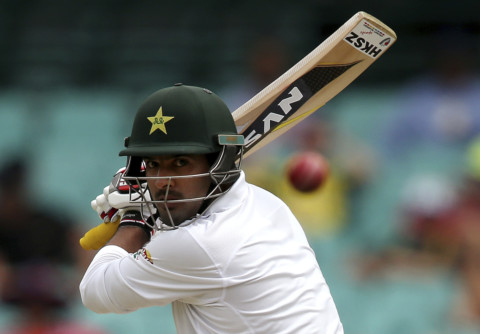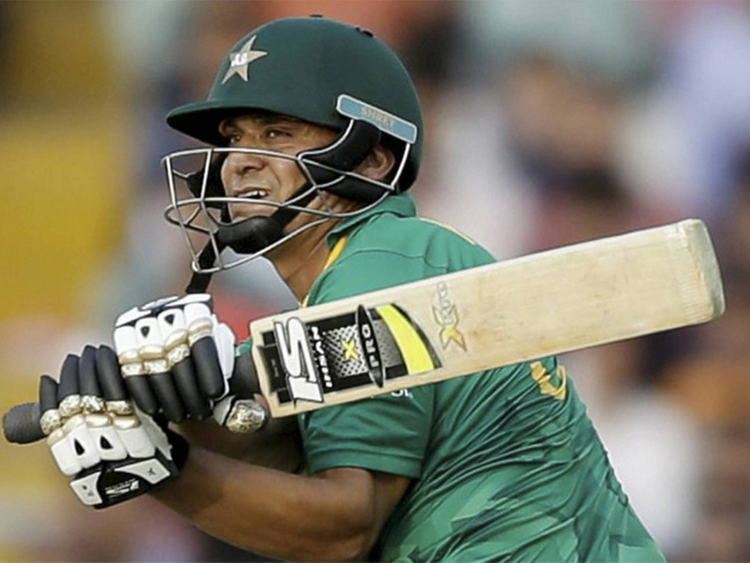
Friday’s high-profile suspension of two Pakistan cricketers — Sharjeel Khan and Khalid Latif — on charges of their involvement in an international corruption scam, raises more questions than answers on the south Asian country’s ability to comprehensively clean up itself.
Key officials from the Pakistan Cricket Board (PCB) proudly revealed the decision to suspend the players as a reformist act. And yet, cleaning up Pakistan’s national sport — cricket — does not even qualify to be counted as a tip of the iceberg, so far as reforming the country is concerned.
Pakistanis are indeed passionate about cricket and the sport has the undisputed status as the national pastime. Yet, Friday’s reported revelation did not mark the first time that the practice of graft in cricket became known. In areas across the board, including other sports, match-fixing is known to have taken place. While these revelations have struck an emotional chord with Pakistan’s cricket fans, the country’s evolution in the past few years has raised plenty of questions over its direction.
There are fundamentally two inter-related questions. On the one hand, the acceptability or not of graft must be seen as part of the country’s overall environment. But on the other hand, action, as undertaken by the cricket board, does not necessarily suggest that the problem is even beginning to be solved. Indeed, the roots of the issue may well extend far and beyond just one measure aimed at cleansing just one sport of malpractices. In fact, the sorry episode that led to Friday’s revelations must serve as a powerful reminder of a central problem faced by the country — the increasing acceptability of corruption.
In the past year, that acceptability has emerged as a powerful issue in the wake of revelations surrounding Prime Minister Nawaz Sharif’s three children and their massive wealth stashed away overseas. The discovery of that wealth in the so called ‘Panama leaks’ has been followed by ongoing Supreme Court investigations. Its too early to predict the outcome, but the very fact that the case has emerged in public domain is a step in the right direction.
Yet, the fundamental issue for Pakistan is indeed that of just too many loopholes that have allowed unscrupulous citizens to indulge in corrupt practices.
At one end of the spectrum, there are laws framed under a previous tenure of Sharif as prime minister that allow individuals to keep unlimited foreign currency funds in onshore bank accounts, without revealing the source of their funds. At the other end lies the issue of immunity from tax payments for farm owners. In recent years, a crash in agricultural income has practically erased the scope for raising significant new revenue from farm owners. But the big gap in this sector remains the absence of a legal framework to bring this sector under the tax laws.
More broadly, however, the failure to fill the gaps in the existing tax collection system and the failure to tightly enforce the law around dodgy individuals have indeed cost Pakistan dear. The issue is not just measurable in financial terms. More importantly, there are intangible elements — the most vital being a countrywide culture of tax evasion.
The scourge of corruption across Pakistan has taken its toll on the workings of the government and the private sector. Examples of the former tainted with corruption range from offices of municipal services to basic utilities such as gas and electricity, stretching right up to the police force. All these represent segments where corruption is so deep-rooted that graft is completely acceptable! Meanwhile, the private sector has also learnt to measure up to the name of the game. Private entrepreneurs have learnt to work with corrupt practices as a cost factor built into their systems. The additional costs are being conveniently passed on to end-users as charges for the final products. It is not surprising that certain segments of Pakistan’s businesses are unable to keep pace with foreign competitors owing to the cost being incurred due to corruption.
Given such a scenario, Friday’s revelations must not be treated as a flash in the pan. It must serve as a powerful reminder of the ultimate consequences of Pakistan’s increasing acceptance of corruption as a fact of daily life. Indeed, a clean-up in Pakistan cricket was long overdue, but it would be meaningless if that is done in isolation from the way the country is run.
And the clean-up act must begin right at the top of the country’s ruling structure. The corruption-related controversies surrounding a succession of Pakistani leaders has indeed meant that decision-makers at the top of the power echelon have practically lost their moral authority, either to lead by example and/or force others to become reform oriented.
On the streets of Pakistan, ordinary folks have the right to resist reforms undertaken in the name of battling corruption, unless backed by examples of a clean-up getting underway at the top. It is possible that beyond the two cricketers named on Friday, others in the world of Pakistani cricket will be taken to task, but the issue extends far beyond just the most favourite national pastime. It is indeed about saving the future of a nation as a whole.
Farhan Bokhari is a Pakistan-based commentator who writes on political and economic matters.









